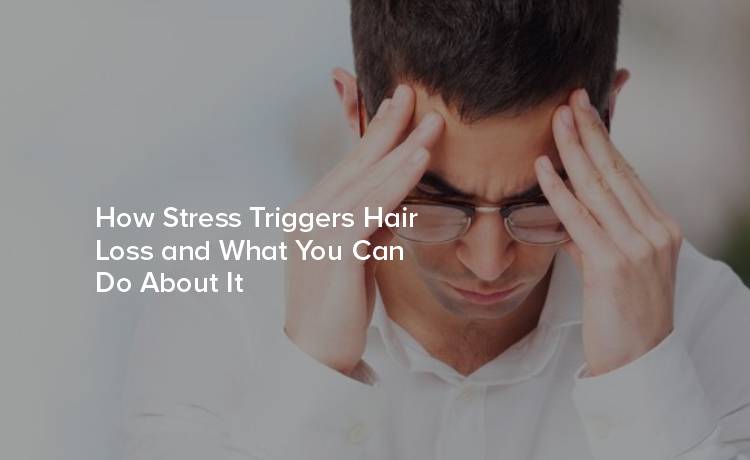
Stress is often called the silent health destroyer, affecting virtually every part of our bodies. One of its most visible and distressing symptoms? Hair loss. Watching strands of hair fall excessively onto your pillow, shower drain, or hairbrush can be alarming and emotionally draining. But what exactly is happening? How does stress impact your hair, and more importantly, how can you regain control and confidence?
To understand how stress triggers hair loss, we need to look at the natural hair growth cycle. Human hair grows in three main phases:
When the body experiences stress, it disrupts this cycle, often pushing a large percentage of active hair follicles into the telogen, or shedding, phase prematurely. Several stress-related hair loss conditions include the following:
1. Telogen Effluvium
Telogen effluvium is one of the most common ways stress affects hair. Significant stress—whether emotional, psychological, or physical—can disrupt the cycle, causing more strands to be shed during the resting phase than usual.
Symptoms typically appear 2-3 months after a stressful event. Think postpartum hair loss, a major illness, or a period of intense anxiety. You may notice thinning patches, particularly around the crown of your head.
2. Alopecia Areata
Alopecia areata is an autoimmune condition that can be triggered by prolonged periods of stress. The immune system attacks healthy hair follicles, resulting in small, round bald patches on the scalp or even loss across the entire body.
While its exact connection with stress remains under study, flare-ups and worsening symptoms during stressful periods have been widely reported.
3. Trichotillomania
Though less commonly discussed, trichotillomania is a stress-induced condition where individuals feel an uncontrollable urge to pull out their hair. Often referred to as a body-focused repetitive behavior (BFRB), this condition is typically linked to high mental and emotional stress.
Hair loss due to stress doesn’t happen overnight. Watch for these early indicators:
The good news? Stress-related hair loss is usually reversible with the right care and adjustments.
Here’s where you can take charge. While stress is inevitable, managing its effects on your hair is entirely possible. Below are some science-backed strategies and tips to prevent further hair thinning and encourage healthy regrowth.
1. Reduce Stress Levels
Reducing stress is your most powerful weapon—and it’s also the most impactful for long-term hair recovery. Here’s how you can keep stress at bay:
2. Focus on Proper Nutrition
Stress often impacts eating habits, leading to deficiencies that weaken your hair. To support healthy hair growth, enrich your diet with these key nutrients:
3. Use Hair Care Products Designed for Restoration
Stress can leave your hair brittle and vulnerable. Invest in hair care products designed to replenish and nourish the scalp:
4. Consider Medical Treatment Options
If you’re noticing severe hair loss or slower-than-expected regrowth, a dermatologist or trichologist might recommend medical interventions. These can include:
5. Foster a Healthy Scalp Environment
Think of your scalp as the soil for your hair roots. Healthy soil fosters healthy growth. Simple daily scalp massages increase blood circulation, providing more nutrients to your hair follicles.
You can also apply natural oils such as jojoba or almond oil to nourish your scalp and improve overall hydration.
6. Give It Time
Perhaps the most difficult step of all is patience. Hair growth is a slow process—on average, it grows about half an inch per month. Stress-related hair loss, in particular, can take 6-12 months to fully recover. Stay consistent with your care routine, and give your locks the time they need to bounce back.
Hair loss may feel devastating, but understanding its underlying causes brings clarity—and hope. With the actionable steps above, you can regain control, reduce stress, and help your strands thrive.
If you’re experiencing significant hair loss or prolonged stress, reach out to a dermatologist or health professional who can provide tailored advice and support.